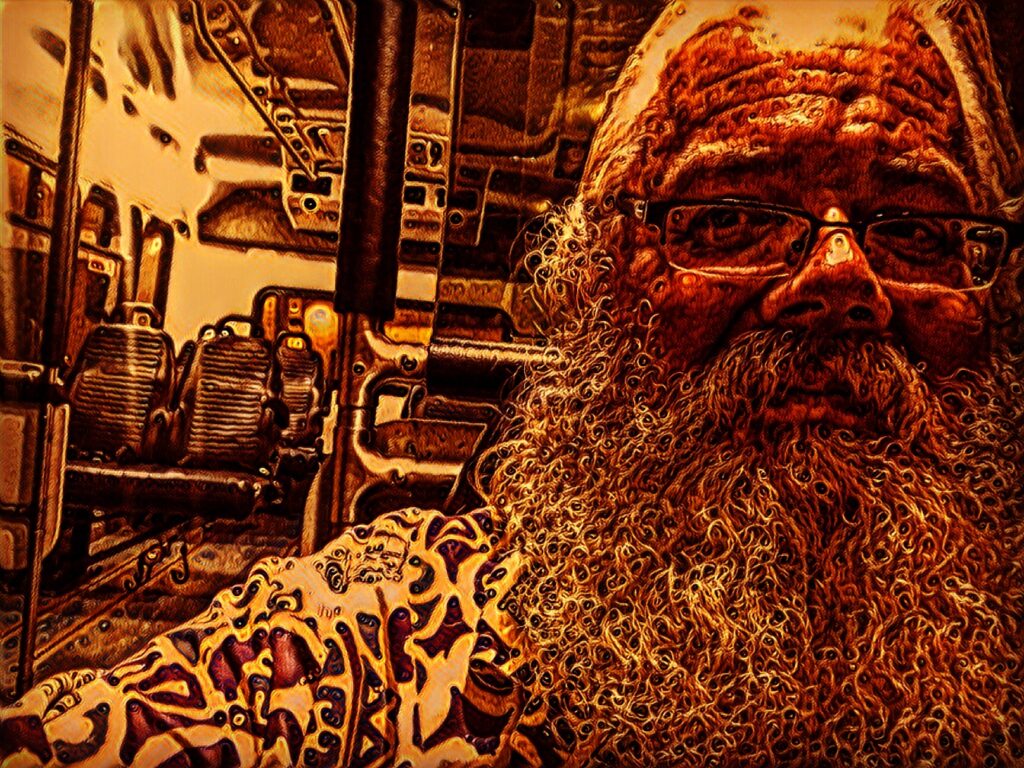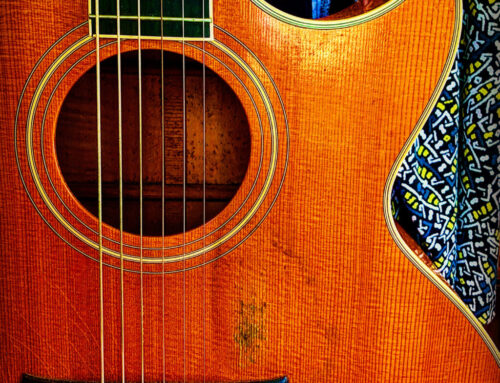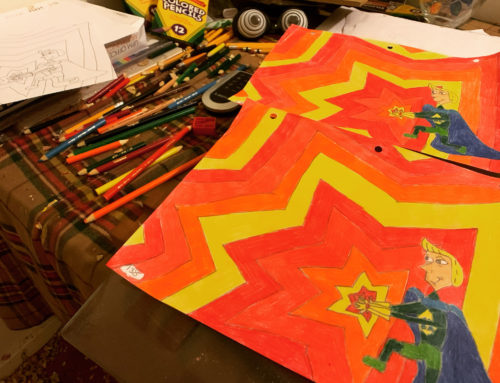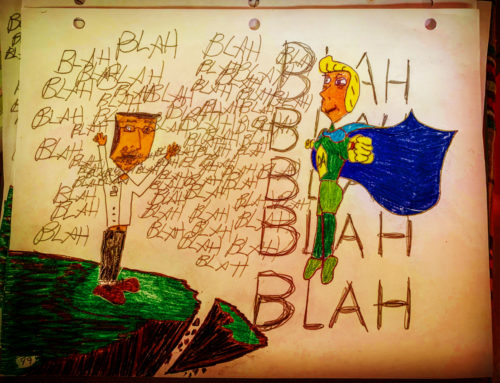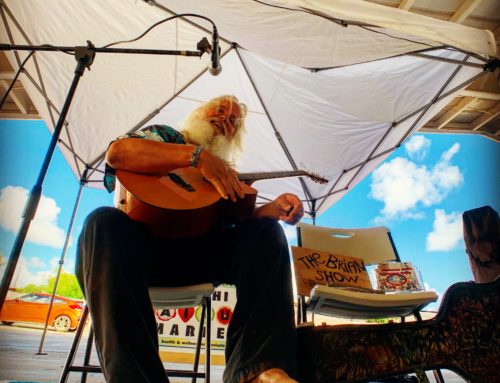“Do you believe in Jesus?”
“Excuse me?”
“Do you believe in Jesus? You know… Jesus, Son of God, The Prince of Peace?”
“Ummm… ”
I’ve been expecting a question like this. Since my first passenger of the day boarded at St. Frances Hospital, she has been praising Jesus with her every utterance. Along with a continuous stream of random declarations and conspiracy theories about the state of the world, politics, current events etc… she is very happy with the president who in her mind has certainly been effectively “making America great again” with all his decisions. I will be picking up no one else all the way to this woman’s drop off point in Mililani, so I knew it was only a matter of time.
I had hoped however, that her question would have been phrased more in line with my usual response to such things from passengers and not so direct. Still, I go for my boilerplate. Hoping for at least enough obfuscation to encourage a change of subject.
“I was raised in a Lutheran family ma’am.”
I hear her throat clear and realize that this is not going to be enough. So before she could ask again (or rephrase, or go into some sort of rant and start preaching at me) I decide to go all in. What the hell. I’d been listening to her all this time and responding politely with “umm hmm”‘s and “oh, I see”‘s so I’m thinking I might as well say my little piece and pray… for peace.
“But to answer your question ma’am, no… I’m agnostic.”
“Agnostic… what’s that?”
“Well, it means… ”
“Oh I know, it means you don’t believe in God at all? Isn’t that right?”
“No. That’s not what it means.”
“Oh I thought it was. People who just think science can answer everything.”
“You’re probably thinking of an atheist ma’am. And that’s not exactly what atheism is about either, atheism is more… ”
“Oh yes, that’s it. What’s an agno… agnostic then?”
“In a nutshell, it simply means that I don’t think such things can be known.”
“Oh… ”
“It also means that I give equal respect to people of all faiths. I just don’t share their beliefs, their theologies… their dogma.”
I’m a bit surprised that the woman is letting me continue without comment to my last sentence so… I continue.
“I was raised in a Christian family so I know more about the traditions and teachings of Christianity than any other religion. I have done some reading about others though, and in my travels I have tried to be open to hearing about the beliefs of people from the many different cultures I’ve been fortunate enough to encounter.
My father was a deacon in his church. Now, I know that some sects of Christianity don’t even consider anyone of a different sect, to be a Christian at all. Some Protestant sects don’t see Catholics as Christian, for example.”
“Oh yea… I know that.” The woman says quietly.
“I see all religions as simply different ways of interpreting the same ideas, the same human drive to make sense of the world. To try and give our existence some meaning. All faiths have equal rights in this country, to worship as they will and so they all have equal standing in my book. And especially in this van.”
The woman “umm”‘s in a slightly unsure, but still agreeing tone.
“You are right, by the way, that many atheists put a lot of stock in the scientific process. I share that with them. Just as I share the sense of obligation to help others that my farther’s religion taught me. I just don’t share Christianity’s theology. My father actually called me a Christian despite my having told him otherwise when I was quite young. He said that he could see that I treated others ‘the way Jesus would’ and thus identified me as a Christian despite my insistence that I would not worship Jesus and would never believe he was the son of God.”
I hear no response from my passenger so I continue to continue, unabated on my roll…
“I loved my father and so very much respected the way he personalized his faith. By doing so he was able include me, his son, into his concept of what makes a good and faithful person. One that would be rewarded in this life and the next.”
“Oh really… ” The woman perks up a bit. “What do you think happens when you die?”
“I don’t know, I’ll find out when I die. I’m at peace with that. I’m not in a hurry to find out but I’m not worried about it. I think it’s more important for me to focus on how I live and how I behave towards others than to obsess on what may or may not happen when I die. My Jewish friends tell me… ”
“Oh the Jews” interrupts my passenger, “yea well they believe that they are the only ones going to heaven, don’t they? But it says in Ezekiel… ”
“And Christians believe that they are they only ones going to heaven, don’t they?” I interrupt right back at her. “As do the Muslims. As I said before, I try not to go around pointing fingers about other people’s beliefs. And even if they behave in ways I judge to be acting badly, short of physical violence I try and imagine where that comes from rather than simply shut them off from my compassion by judging them as ‘wrong’.”
“Yes. I see.” The woman responds, now a bit thoughtfully. “I want to see myself as a good person but sometimes I act in ways that make me feel like I’m not.”
I quickly take as personal a tone as I can.
“I think that even people who do horrible things, may be doing so simply because they believe themselves to be the type of people who do horrible things. They may have convinced themselves of this or others may have convinced them. Probably a bit of both. They have come to self identify that way though, and get stuck in that way of thinking. They think that this is just they way they are and the way they do things and if others think it’s horrible… nuts to em. They have basically written themselves off from their own sense of compassion. Or perhaps they have gone so far as to have written off compassion entirely.
I believe it’s possible for almost anyone to tell themselves something else instead, however. That they can simply tell themselves to identify as a person who wants to do good things. Then if they do something horrible, they might see that as how they just did something wrong rather than as doing something they just do. They might instead see it as something they want to change. This could be a first step for that person, to doing less horrible things and eventually even start doing more good things than bad. And this could be a first step to starting to see themselves primarily as a person who does good things.”
“How can that happen?”
“It starts with awareness.” I continue. “An awareness of self as totally as possible. Thoughts lead to feelings that lead to behaviors, and if you are aware of what you are thinking, you can be better aware of why you feel the way you do, and why you may have behaved the way you just did. With that awareness, you can then decide if that is how you want to show up in the world.
I meditate regularly. I’t’s something I share with the Buddhist religion.”
“Oh but that doesn’t work.” Blurts out my passenger. I come back with a quick challenge.
“So now you are judging a religion and the people who believe in it’s practice as wrong. And based on what, something someone told you about them? Whenever I hear something like that I wonder what the agenda is. People seeking power, money and influence have been using religions and philosophies of all flavors to get what they want since forever. With or without intending to do so, those charged with defining humanities most beautiful ideas and practices can just as easily do so for personal profit and/or aggrandizement as they can for the health and welfare of others.”
I hear a clear sigh of recognition. My passenger can obviously relate. She even seems to have a bit of enthusiasm for the thought.
“Yes… you are right.” She says suddenly. “I do know that The Roman Catholic Church has a long history of this.”
“And so do other sects of Christianity. As do Muslims, Buddhists, Hindus… all religions and philosophies. All have sinned. And all have done good. Many tribal cultures once thought of as only primitive and savage by the ‘more advanced’ cultures that conquered them, have beautiful and sophisticated ways of living far in advance of those who destroyed them. Those ‘more advanced’ cultures saw themselves as superior but were far from it.
To my understanding, Buddhists believe that world peace will be achieved once at least two thirds of the population of the planet, meditate regularly. You saying that won’t work is like me saying that your belief that we are in “the end of days” according to the book of revelations (as you told me earlier) is wrong because there have been many instances throughout history when Christians have second-guessed their god and declared the end to be near. And it didn’t happen. So your religion doesn’t work.
What I like about meditation is that it doesn’t require me to believe anything. It’s just a practice to help me be more aware of my mind and body. A practice that helps me show up in the world with intention. In a way that is in line with my sense of what I personally believe to be how I should be living.
But meditation, is also quite consistent with Christianity. There is no need to disbelieve either, in order to affirm faith in the other. My favorite Christians also meditate regularly and they tell me it helps them focus on how God wants them to behave. Like a form of prayer.”
Having arrived at my passenger’s destination a few minutes ago, we are now standing outside the van.
“Well” she says, looking at me. “You’ve sure been saying a lot.” She stops and thinks a moment and then continues. “You’ve given me a lot to think about. Thank you”
She reaches out and I accept the handshake. I return to my van and ready myself for the long day ahead.
“Whew!”
Peace/Love
m(___)m
